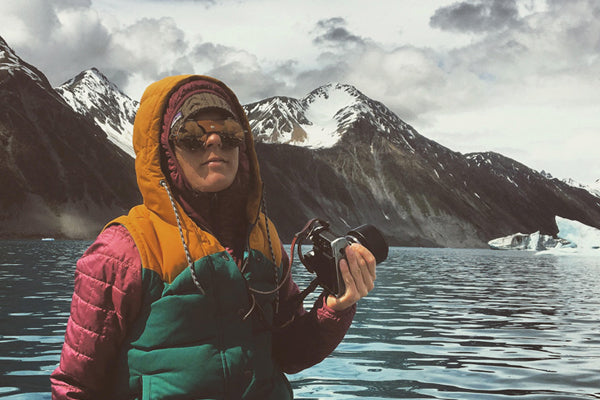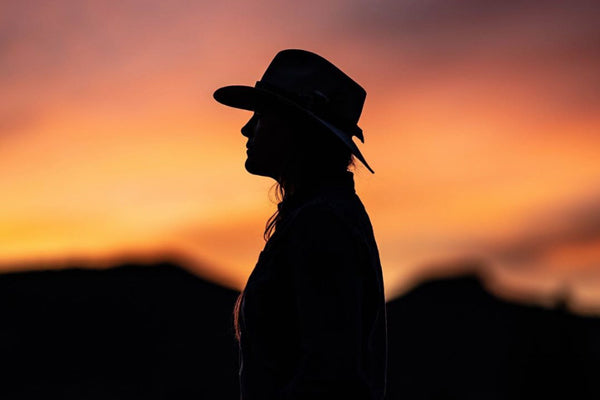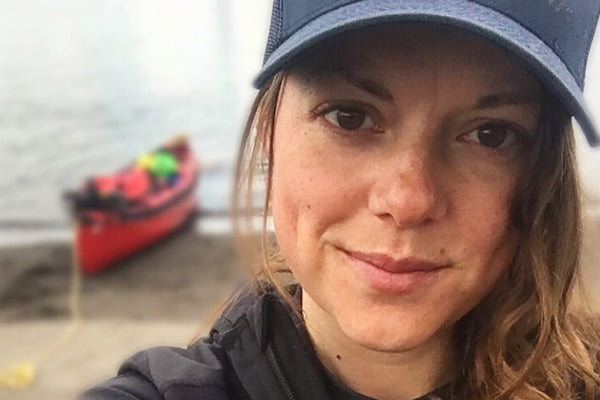We choose our Voyagers carefully and ensure they represent VSSL in a specific but unique way. They are a rad group of people with very diverse backgrounds. Debbie Hollomon is no exception. In addition to being a US Coast Guard certified boat Captain, she’s a surfer, kiteboarder and snowboarder and a passionate advocate for the environment. We asked her to be a VSSL Voyager with a specific focus on our environmental initiatives.
Debbie graciously took some time to share her perspective on the importance of environmentally responsible initiatives as we enter the new year. And we encourage you to take action in the areas you can as well in 2020!

Enter Debbie Hollomon:
As consumers, what we buy and who we support has a huge impact, and so the environmental movement has largely focused on personal accountability. To me, this can be intimidating and frankly disheartening.
Does buying that nifty new multitool suspended in a plastic clamshell or batteries for my headlight in a plastic blister pack mean I don’t care about the planet?
Are we all hypocrites for sporting new synthetic technical fleece and nylon rain gear as we head out to explore what’s left of the wild? 
I don’t think so, and I also don’t think it’s fair to place the burden of environmental stewardship on consumers alone. Sure, we can certainly do our best to make informed buying decisions and support companies that promote sustainability and transparency. Even more importantly, we can choose not to support the companies that continue to pollute our resources and manufacture unethically. But It’s not realistic to expect everyone to be able to attain a zero waste lifestyle or go without multitools and rain gear, especially those of us who head off into the outdoors. So along with personal accountability, businesses need to step it up and be accountable for the products they make, the way they package them, and the waste generated in the process.
According to an article in National Geographic as part of their Planet or Plastic campaign, product packaging is responsible for more plastic waste than any other industry, accounting for more than half of all plastic waste in Europe and the United States. Most of that never gets recycled, so that’s an awful lot that either gets burned (creating more emissions) or just hangs out in landfills or in our oceans somewhere. As outdoor enthusiasts, we do need to be concerned about this. It sucks bad enough to come across litter on your favorite trail, but a new study that analyzed rain and snow samples in Colorado’s Rocky Mountains just revealed that we’re so saturated in plastic it’s literally raining down from the sky. Our plastic problem is far too big to take on individually, and I’m sure I’m not the only one sick of the weight of the world on my shoulders each time I go shopping for essential new gear. Enough is enough, and luckily VSSL is just one of a bunch of outdoor brands that are leading the way and incorporating more ecologically minded practices into their business models. 
One notable organization in the pursuit of spreading sustainability in business is the Outdoor Industry Association (OIA). VSSL is a proud member alongside huge names in the field such as Patagonia and REI that are helping to shift our ideas around what corporate accountability means and moving the mark for other brands with their massive influence. OIA’s stance on sustainability is clear — “We build products to enable more people to get outside. It is our duty to make sure that in sourcing, manufacturing and delivering these products, we do everything possible to minimize their impact on the environment.” Kind of a no brainer, really. Who better to look out for the great outdoors than those of us who have a thing for nature? Especially the companies whose success depends on the health of the wild places we set out to enjoy. The association even has a Sustainability Working Group that provides tools for brands to look into their supply chains, achieve a more circular economy by reclaiming waste and promoting repair, and has intensive “Sustainability Bootcamps” to whip small brands into shape who are looking to develop greener business strategies and effective, relevant solutions. 
But what does brand sustainability look like? For VSSL, it’s always looked like well-designed, well-made, and well-sourced gear that lasts a lifetime and socially responsible manufacturing. Most recently, it means achieving 100% recycled packaging made from 50% post consumer and 50% post industrial waste cardboard — with ZERO plastic! No more moral dilemmas on the camping goods aisle. We’ve become so accustomed to products inherently harming the environment, packaged irresponsibly, and then breaking, or going out of style, and ultimately just getting thrown away. But one of the coolest aspects of VSSL that originally drew me to the brand was that each model comes with a lifetime guarantee, interchangeable parts, and refillable contents. Not only does it appeal to my eco-sensibilities that my gear is adaptable, but it’s added peace of mind that it won’t fail me when I need it most. As a Voyager, I’ve been the lucky recipient of quite a few prototypes over the years. It’s been awesome watching VSSL evolve, and I’ve been stoked to be able to play a modest role in nudging fellow adventurer and VSSL founder Todd Weimer toward a greener future. With each new model the team has made significant improvements in design, function, and durability. The packaging has likewise undergone changes, and this newest sophisticated version has come full circle from the recycled cardboard box they were packaged in originally, the new one being a little easier on the eyes.

The ecological issues we’re facing today won’t be solved by any one company or the outdoor industry as a whole, and certainly not by conscious consumerism alone. The unfortunate reality is that even if I refuse to buy questionably made goods wrapped up in single use plastic, as long as that’s an acceptable way to market and sell products, someone else will. But I’m inspired that companies like VSSL are stepping up to redefine success in business to encompass more than just economic growth. It will take bold collective action to conserve the resources that we depend on for sustenance as well as recreation. Bolder still to make the shifts necessary to curb the worst effects of a changing climate. It seems like a solid place to start for brands to acknowledge that the folks buying their products are more than just consumers, and that they owe it to their customers to make investments toward a better world.
- Debbie Jean




Leave a comment
This site is protected by hCaptcha and the hCaptcha Privacy Policy and Terms of Service apply.